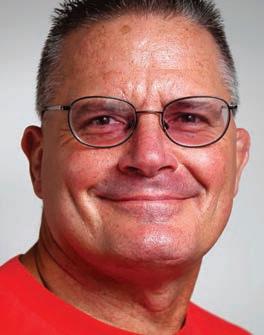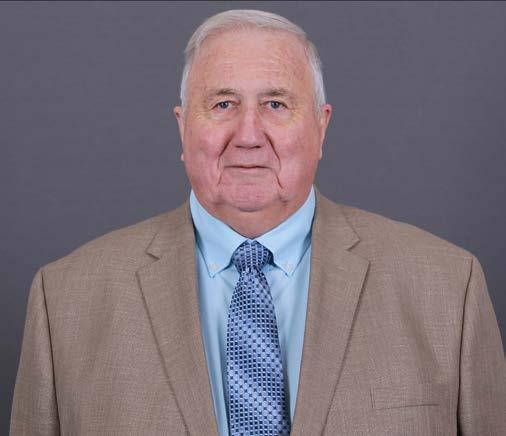
9 minute read
CZECH POINTS by Paul Svoboda
WELLINGTON DUKES NCAA’s Secret Pipeline to Game Ready Talent
Special Report By Puck Chaser
Advertisement
INTRODUCTION
You hear it all the time in hockey circles in Canada ; “ There is no right or wrong path in hockey development”, meaning that the choice between CHL and NCAA really depends on the player. This may be true, however there are views and preconceptions created in any form of speculation , especially hockey talent. How strong is the league? How good is the coaching? What sacrifices have the players made to succeed? All of these factors play into decisions ofNCAA and NHL scouts. One team, THe Wellington Dukes is striving to change all of these preconceptions.
The Dukes of Wellington
The Wellington Dukes are one of the most storied and well known franchises in Canadian Tier 2 JrA hockey for over 4 decades. The history of the franchise can be traced back further than that , as the Belleville Bobcats were the predating version of the current franchise. The Jr. B Bobcats were a very successful entry into the old Metro JR B loop in Ontario producing NCAA and NHL players such as Rick Meagher, Mark, Bobby and Lou Crawford, Terry Meagher, Grant Goegan, the names go on and on.. The Dukes have been very successful promoting players to CHL and NCAA over the years as the hockey landscape changed and evolved. Marty Abrams was at the helm for many of those years and ran a respected and successful franchise which saw numerous league championships and runs to the National title.
The New Era
Through the Eighties and Nineties the emergence of the BCHL(British Columbia Hockey League) with Blue chip NHL prospects like Paul Kariya leading the way, led most hockey observers to view the BCHL as the preeminent Canadian “Tier 2” league. Although it was essentially part of the CJHL which has 10 leagues in 4 regions and 133 teams, the BCHL was considered the cream of the crop. Top prospects from Canada and the U.S. were drawn to the well run franchises and successful playoff runs of many great franchises in the BCHL. As the USHL developed into an “older” league comprised of 19 and 20 year old NCAA commits, many U.S. prep school players and NCAA focused Canadian players elected to go to the BCHL and overlook other member leagues of the CJHL like the OJHL, AJHL or CCHL. Franchises like the Brooks Bandits, Trenton Golden Hawks, G e o r g e t o w n R a i d e r s Oakville nBlades, Ottawa Jr.Senators and Carleton Place Canadians have all had very solid franchises over the years creating very competitive teams but still seem to fall below the radar as compared to BCHL teams no matter how much NCAA talent they push through. Elite talent must decide to play Major Junior hockey in Canada or play in a Tier 2 league to be eligible for NCAA hockey. The competition for this elite talent is fierce.
The Wellington Dukes are endeavouring to change those perceptions. New Ownership took over at the beginning of the 2017-18 season. Led by Ken Clement, a successful entrepreneur and former BCHL alumni. The team assembled a strong hockey operations team and actively became more aggressive in its approach to recruiting hockey players that will not only compete, but develop and move on to higher levels of hockey. “My vision is to become the #1 team in Canada for moving players on to Canadian and NCAA schools “says Ken Clement, owner of the Dukes. We run our franchise like a pro team would. “We have abandoned the pay to play model seeking other revenue avenues to make this a place where all players can play not just those that can “afford” to chase their dream of a scholarship. “This point is not lost on many in hockey circles today. The cost of hockey has increased and priced many people out of the market. For some families the only choice is to play OHL hockey as many Tier 2 Junior teams have gone to pay to play models. “ Not only do we want to attract the best players, we want to produce quality people and develop them into outstanding players. “
The facilities at the Wellington Arena are First in Class in the OJHL with strong local support provided to the team from the local
“Duke Nation” in Prince Edward County. Clement adds; “We have added all the resources to make the players successful.We have a trained chef providing customized post game meals to players, we have invested in a training facility that will have a full training gym operational shortly while providing full time elite coaching, training and athletic therapists. “
Photo: Amy Deroche/ OJHL Images

Coaching has long been the hallmark of the great Wellington Dukes teams of the past MartyAbrams, Wayne Marchment and John Druce have all had very successful tenures as Head coach. The new era of the Dukes is led by former NHL and NCAA player Derek Smith. Derek was a captain for the Dukes before taking a scholarship at Lake Superior State ahead of playing Pro . “Derek is a rare talent “ saysTodd Reid, former Dukes and Canadian University player as well as General Manager for the Dukes, “He has the experience and knowledge gained from his playing experience that is augmented by his ability to teach and motivate modern players. Times have changed and players want more information and have different triggers to promote performance. Derek brings all of that and more to the rink every day. He truly is one of the brightest coaching minds in the game today”.
Proof of these increased efforts in Dukes Nation can be seen by the successes over the last three seasons. A run to the National Championship final in its first season of ownership followed up by a loss in the final of the OJHL Championship followed by the current season which sees Wellington perched atop of the OJHL standings ranked as high as tenth in the country and one of the favourites to win the Buckland and Centennial Cup this year. Wellington boasts skill coaches like Chris Longo, former AHL player and elite skills coach as well as Mike Murphy , former NHL goaltender and current goaltending coach for the Dukes. “ We have hired some of the best people in Ontario to help our players and invested in an extensive scouting network to find players that can continue the tradition of excellence we are pursuing,” says Reid. “The players have access to NHL level fitness professionals and we even do SAT training with our players!”
These recent efforts have not gone unnoticed. Brian Hills Associate Head Coach of the Rochester Institute of Technology (RIT) has been impressed with the professionalism and attention to detail of the Wellington Dukes Organization. “The Dukes have been great to work with. We cannot express enough how impressed we were with how NCAA game ready both of our recruits from Wellington were when they came to camp.They looked like they had played college hockey for one or two years on Day 1 and that speaks volumes of the Wellington program”. Andrew Rinaldi and Elijah Gonsalves were both recruited by RIT and saw their games elevate during their tenure with the Dukes. Both players have been highlighted as top performers in the NCAA Atlantic Conference this season. Other players like Declan Carlile.
(Merrimack) and Mason Snell) Penn State, Colin Doyle Alaska) Mitchell Martan (Canisius) among others have all left the Dukes program and gone on to NCAA success.
The NCAA vs OHL/CHL Conundrum
A great example of the challenges faced by the Wellington Dukes in fostering its brand recognition on the International stage is encapsulated in the story of Zach Uens. Uens a 2001 birth year was drafted 4th round to the Flint Firebirds in the OHL. He made the decision to join the Wellington Dukes as a 16 year old and pursue an NCAA scholarship as opposed to entering the traditional path most players with NHL aspirations would. Uens‘s play rapidly developed and was noticed early in his rookie season by a number of schools. Uens settled on Merrimack College playing in Hockey East. By Uens’s second year he was on NHL radar ranked 130 by Central Scouting. Uens went undrafted in the 2019 draft. Fast Forward to the 2019-2020 season and Uens is now a “true freshman” (18 years old) at Merrimack College turning NHL scouts heads with his elite skating and agility. Currently Uens has more points than all but 1 of the 16 :True Freshman” (2001 born) defenceman playing NCAA that were drafted by the NHL in the 2019 draft. He is currently tied with Cam York of the University of Michigan with 9 points .York was a 1st round selection of the Philadelphia Flyers in 2019. It is clear that Uens can expect his name called at the 2020 draft but how does he slip through while playing for the Dukes in 2019? Was it the early season injury or was it the view that the OJHL was not as strong as other leagues. “ Uens slipping through the cracks at the NHL draft and his subsequent success at the NCAA level was a sign to me that we need to get the word out on how good our league actually is and more so what a great job of development we do with the Wellington Dukes.” Says Clement. “I want 20 more Zach Uens and hundreds more of Rinaldi type success stories” he goes on to say. “ We are committed to two things, Winning and developing players ; both as players and human beings.” Clement makes a compelling story. Both paths, OHL/CHL and NCAA have its merits. Over 30% of the NHL is coming from the NCAA ranks. Clements continues. “The level of play in the NCAA for an 18 year old or 19 year old is far more advanced than the OHL. Older, more experienced players in their twenties ramp up development and get you ready for the pro game. You cannot deny the success of the CHL at getting players drafted, but long term development may give the advantage to the NCAA”.
Clements vision to move the Wellington Dukes into the upper echelon of Junior hockey may be happening faster than even Clement would have envisioned. High profile Blue Chip recruits are seriously evaluating the decision to go NCAA over OHL and considering the Dukes as that path forward. “The success of the program over the last three years combined with a commitment to excellence by ownership make this a pretty attractive place to play hockey and get ready for the next level of hockey.” Says Reid. “It’s not how good you are at 16, it’s how good you are at 21 or 22 when the NHL wants you ready.We think that we are a big part of that equation”




